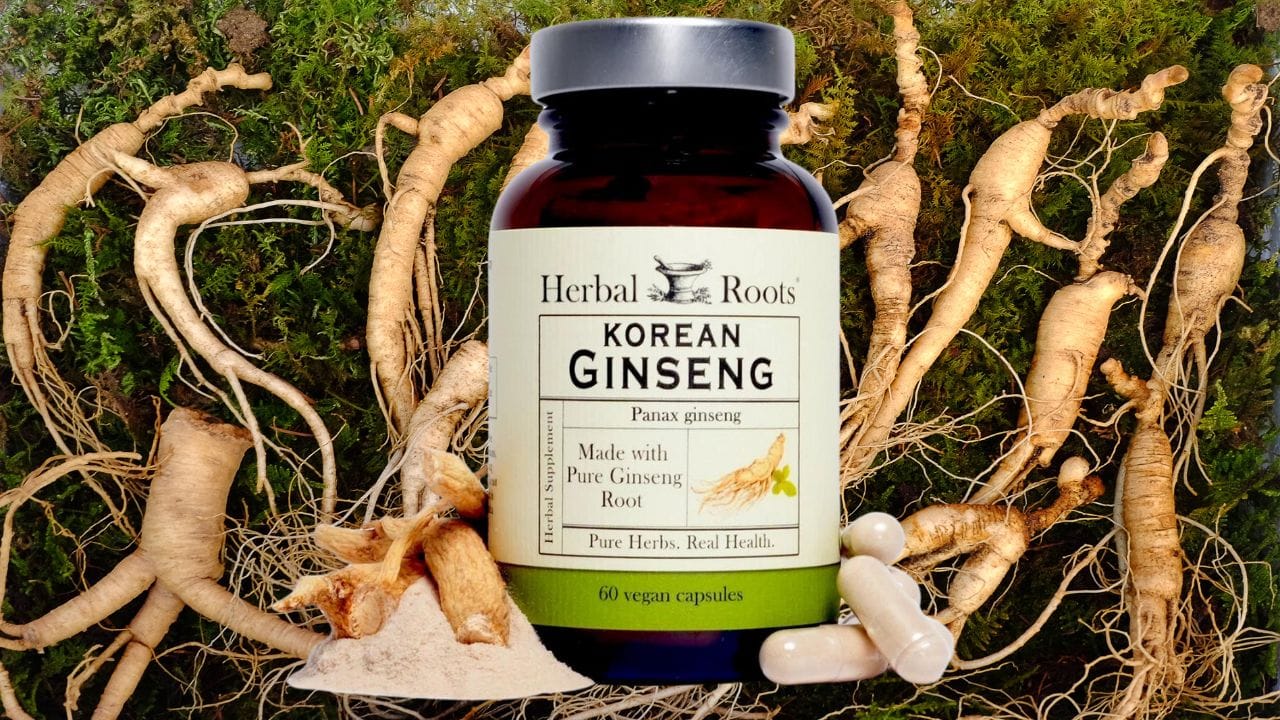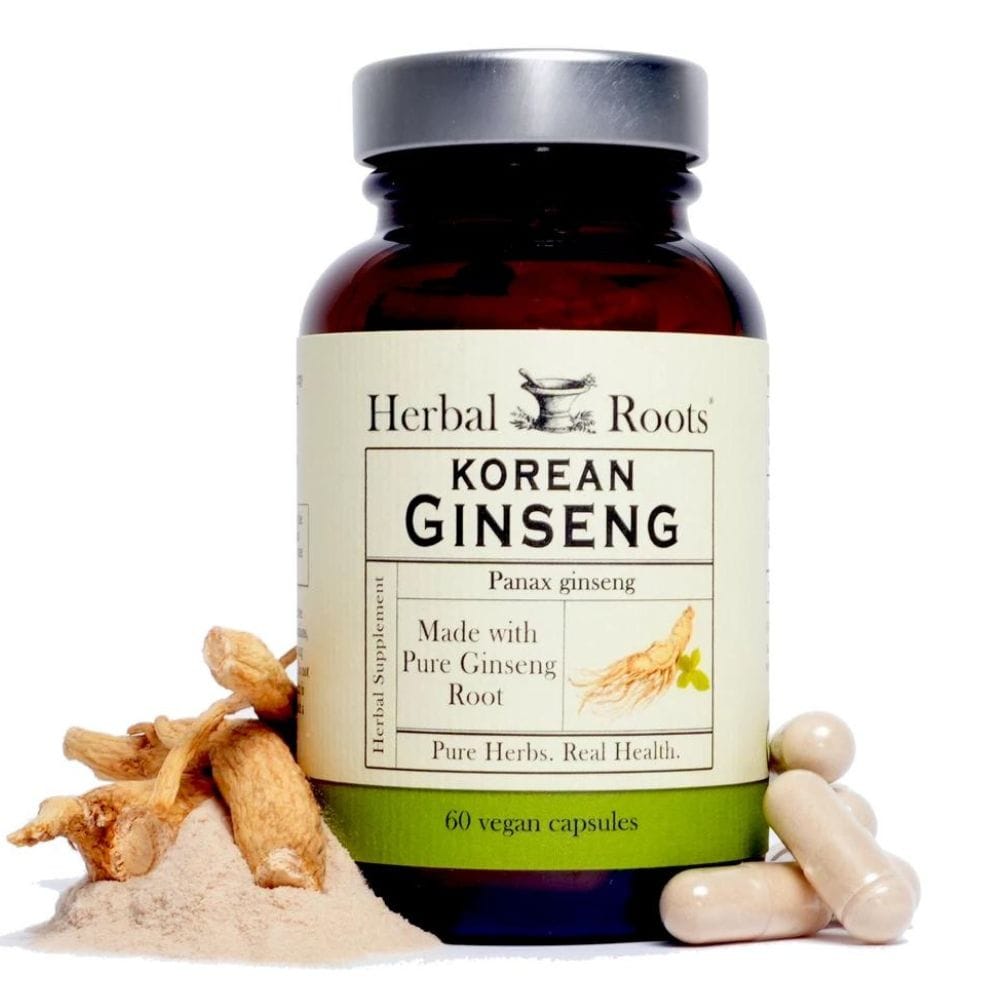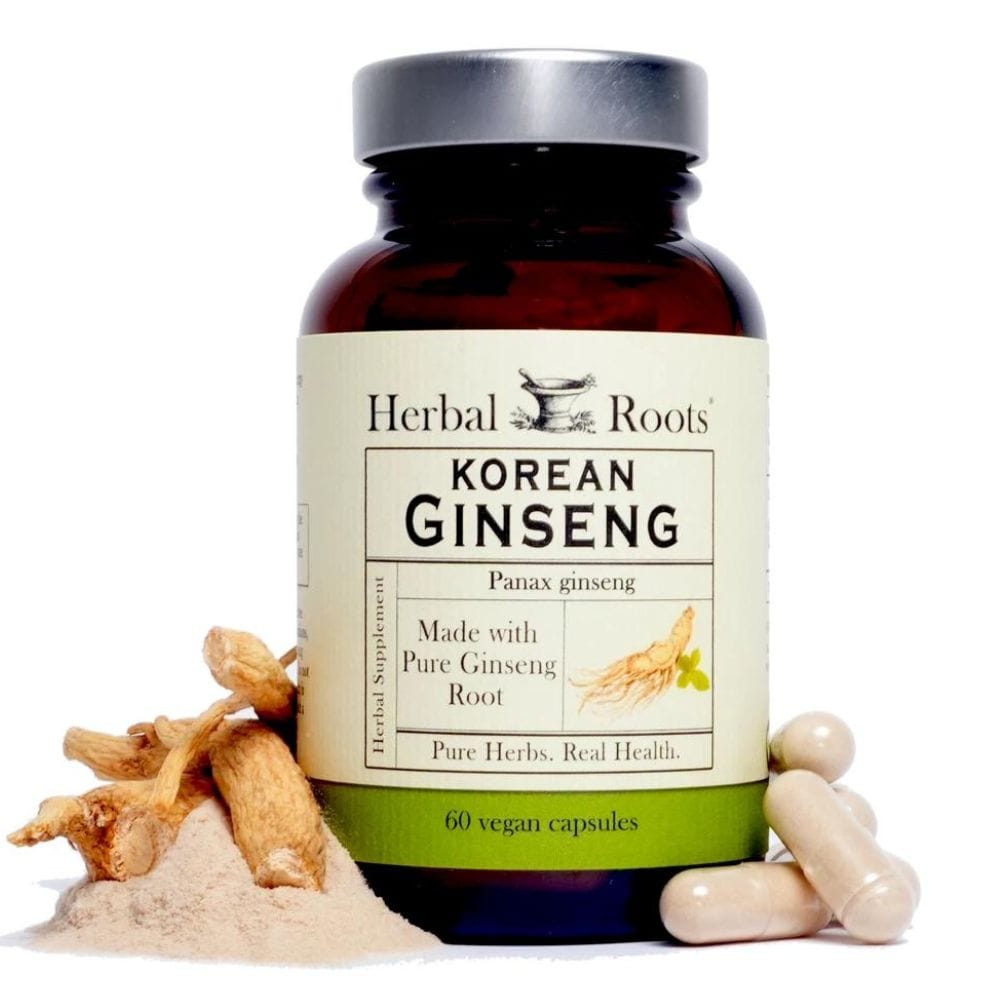Key Takeaways:
- Herbal Roots Korean Ginseng is a potent supplement that offers a range of health benefits, including immune support and enhanced physical endurance.
- The supplement is derived from high-quality Panax ginseng, ensuring the presence of beneficial ginsenosides.
- Clinical studies suggest that Korean Ginseng can aid in managing blood sugar levels, improving cognitive function, and supporting overall well-being.
Ginseng, a revered root in the realm of traditional medicine, has been a cornerstone of health and wellness for centuries. Among its many variants, the Herbal Roots Korean Ginseng supplement stands out as a beacon of vitality and vigor. This review delves into the depths of this ancient remedy, now encapsulated in modern convenience, to persuade you of its unparalleled benefits.
How We Choose
Our team has spent hours researching through thousands of user reviews and star ratings for the best supplements on the market. We take into account factors such as taste, nutrition, ingredients, sustainability, and affordability when recommending products to our readers. We strive to find the best options that meet everyone’s needs - even those on a budget!
We hope this may be your next special item! This product was independently selected by our editors. Good Guru Reviews may collect a share of sales or other compensation from the links on this page if you decide to buy something (at no additional cost to you, that's how we stay in business). As always, enjoy finding your next special item with us!
The Historical Significance of Korean Ginseng
The story of ginseng begins in the lush forests of Asia, where it was first discovered over 5,000 years ago. Revered in traditional Chinese medicine, ginseng, particularly the Panax species, has been a symbol of harmony and a source of life-enhancing properties. The term "Panax" is derived from the Greek word for "all-healing," reflecting the root's esteemed status among medicinal herbs.
Panax Ginseng vs. Other Varieties
While there are several types of ginseng, such as American ginseng (Panax quinquefolius) and Siberian ginseng (Eleutherococcus senticosus), Panax ginseng, also known as Asian or Korean ginseng, is considered the most potent. The key lies in the ginsenosides, active compounds that are abundant in Korean ginseng. These saponins are the essence of ginseng's therapeutic prowess, distinguishing it from other herbs.
The Science Behind Ginseng's Health Benefits
Numerous studies published in journals like J Korean Med Sci and J Agric Food Chem have investigated the health benefits of ginseng. Ginseng extracts have been shown to bolster the immune system, enhance physical endurance, and even exhibit adaptogenic properties that help the body resist stressors. Its impact on the central nervous system has also been noted, with potential benefits for conditions like attention deficit hyperactivity disorder (ADHD) and essential hypertension.
Ginseng in the Fight Against Diabetes and High Blood Pressure
The ability of ginseng to lower blood sugar levels has been a subject of interest in the scientific community. A randomized controlled trial highlighted its efficacy in managing glucose levels, making it a valuable adjunct to diabetes medications. Similarly, its role in managing high blood pressure has been explored, with findings suggesting that ginseng may help in maintaining cardiovascular health.
Korean Red Ginseng Extract for Enhanced Efficacy
Korean red ginseng, a variant that undergoes a special preparation process, is particularly rich in ginsenosides. This form of ginseng is often used in high-quality supplements like Herbal Roots Korean Ginseng, ensuring that users receive the full spectrum of its health-promoting compounds. The extract is believed to be more potent than fresh ginseng, offering a concentrated dose of its active ingredients.
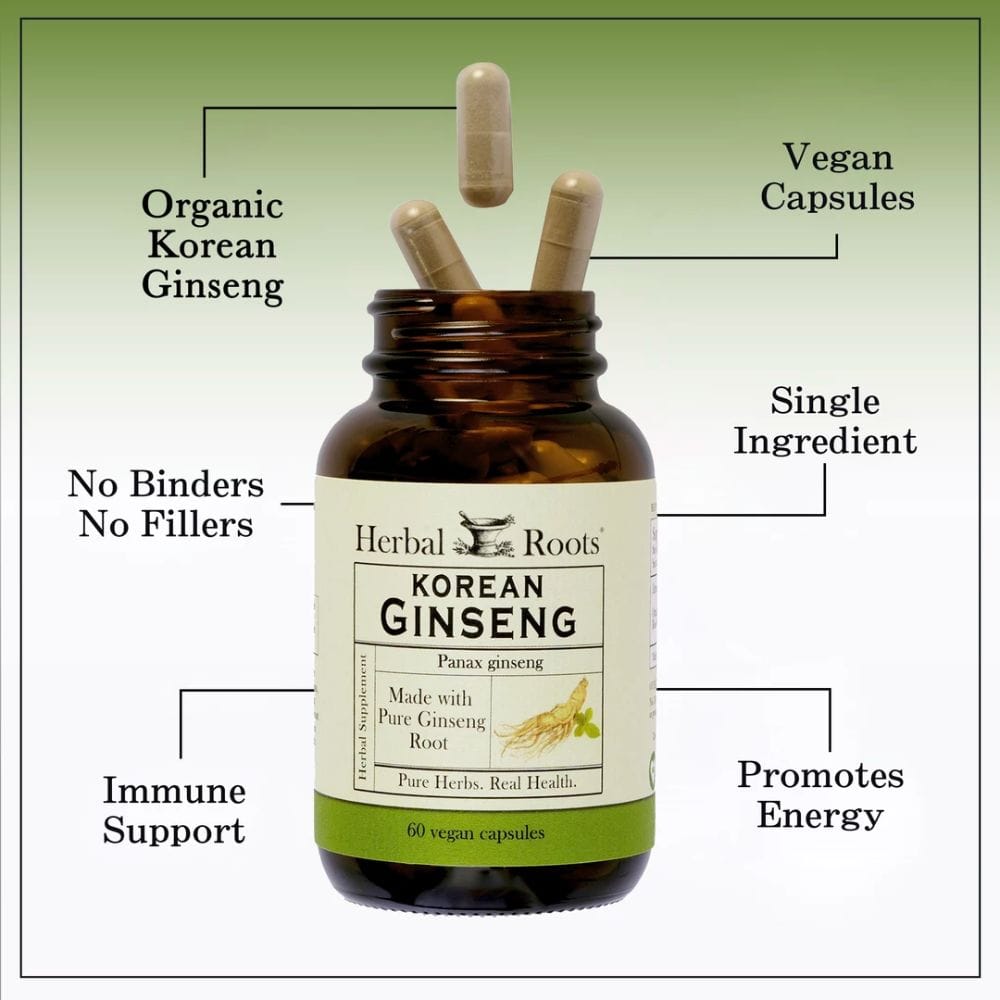
Organic Korean Ginseng Root: Purity and Potency
For those seeking the purest form of this supplement, organic Korean ginseng root is the gold standard. Free from pesticides and artificial additives, organic ginseng ensures that you are ingesting nothing but the pure, unadulterated power of the root. This is particularly important for herbal products, where the quality of the raw material directly affects the efficacy of the supplement.
The Versatility of Ginseng: Oral and Topical Uses
Ginseng's versatility extends beyond oral consumption. Topical ginseng applications have been studied for their skin benefits, including anti-aging and rejuvenating effects. Whether ingested as vegan capsules or applied as part of a multivitamin complex supplemented with other medicinal plants, ginseng adapts to various forms to meet diverse health needs.
Ginseng and Cancer: A Ray of Hope for Patients
The exploration of ginseng in cancer care has opened new avenues for herbal therapies. Some studies suggest that ginseng may improve the quality of life for cancer patients, potentially reducing fatigue and enhancing physical performance. While not a cure, ginseng's supportive role in cancer treatment is a testament to its broad therapeutic potential.
Exploring the Synergy of Ginseng and Ginkgo Biloba: A Potent Combination
Ginseng and Ginkgo Biloba, two revered staples in the world of herbal supplements, have been individually celebrated for their health benefits. However, when combined, they form a synergistic duo that amplifies their individual effects. Studies suggest that the ginseng saponins, known for their ability to enhance mental clarity, work in concert with Ginkgo Biloba's compounds, which improve blood flow to the brain. This combination is particularly appealing to the ginseng user who seeks a holistic approach to cognitive enhancement.
The fusion of organic ginseng root powder with Ginkgo Biloba extracts is becoming increasingly popular in nutritional supplement circles. This blend is not just about mental acuity; it also offers a fortified defense against the cognitive decline associated with aging. A randomized clinical trial could further elucidate the benefits of this herbal tandem, potentially positioning it as a cornerstone in the realm of natural cognitive aids. The promise of such a combination is a testament to the evolving sophistication of herbal medicines.
The Distinction Between Wild Ginseng and Cultivated Varieties
When discussing the potency and value of ginseng, the conversation often turns to the comparison between wild ginseng and its cultivated counterparts. Wild ginseng, revered for its rarity and robust profile of beneficial compounds, grows without human intervention, often in the forests of Asia. This "human root," as it's sometimes called due to its anthropomorphic shape, is believed to contain higher levels of ginsenosides—the active components responsible for ginseng's health benefits. Collectors of wild ginseng must be patient and respectful of the environment, as this precious herb can take years to mature.
In contrast, cultivated ginseng, which includes varieties such as Chinese ginseng and Korean Panax ginseng, is grown on farms under controlled conditions. While these varieties are more readily available and affordable, some purists argue that they lack the full spectrum of qualities found in wild ginseng. However, advancements in agricultural practices have led to the development of high-quality cultivated ginseng, such as sun ginseng, which undergoes a special process to increase ginsenoside content, bridging the gap between wild and farmed ginseng.
Ginseng's Influence on Stress and Anxiety: A Natural Remedy
The Asian ginseng root has long been revered for its adaptogenic properties, which are believed to help the body resist stressors of all kinds, be it physical, chemical, or biological. Recent studies, including placebo-controlled pilot trials, have shown promising results in reducing stress and anxiety levels among participants. The active compounds in ginseng, known as ginsenosides, are thought to modulate the hypothalamic-pituitary-adrenal axis, which governs stress responses, thereby offering a natural, restorative approach to managing daily stress.
Moreover, white ginseng, a variant of Asian ginseng that is dried but not steamed, has been studied for its potential to enhance mood and promote mental well-being. While research is ongoing, anecdotal evidence and preliminary studies suggest that white ginseng may have a calming effect on the mind, making it a valuable supplement for those looking to alleviate anxiety and improve their stress management. As with any herbal supplement, it's important to consider the dosage and form of ginseng to maximize its therapeutic benefits.
Ginseng Res: Uncovering the Latest Research Findings
The world of herbal supplements is abuzz with the latest findings from ginseng res, or research on ginseng. Recent studies have shed light on the myriad of health benefits associated with this ancient root, reinforcing its status as a powerhouse in herbal medicine. A placebo-controlled pilot trial, a gold standard in clinical research, has demonstrated ginseng's potential in enhancing cognitive function and reducing fatigue. These findings are not just promising for those seeking natural health solutions but also pave the way for future research to unlock even more benefits of this versatile herb.
Continuing on the trail of scientific discovery, ginseng res is also exploring the root's adaptogenic properties, which help the body resist stressors of all kinds, be it physical, chemical, or biological. This research is particularly relevant in our fast-paced world where stress and burnout are prevalent. By delving into the pharmacological actions of ginseng, researchers aim to provide a solid foundation for its use in stress management and overall well-being, making it a subject of great interest for health professionals and consumers alike.
Ginseng and St. John's Wort: A Herbal Harmony or Discord?
When discussing herb-drug interactions, the combination of Korean Ginseng and St. John's Wort demands attention. Both herbs are renowned for their medicinal properties, yet their confluence can be a double-edged sword. Korean Ginseng, known for its adaptogenic qualities, may amplify the effects of St. John's Wort, which is commonly used for depression. This synergy could potentially enhance the therapeutic benefits, but it also raises concerns about increased side effects or altered drug metabolism.
In a placebo-controlled pilot trial, the interaction between these two herbs could be meticulously studied to ensure safety and efficacy. Researchers are particularly interested in how Korean Ginseng might affect the pharmacokinetics of the active compounds in St. John's Wort. Such trials are crucial for developing guidelines that can prevent adverse interactions and optimize the use of herbal supplements in conjunction with traditional medications.
Ginseng and Cognitive Enhancements: Sharpening the Mind
The quest for cognitive enhancement has led many to explore the synergistic effects of herbal supplements. Ginseng, long revered for its adaptogenic properties, is now being scrutinized for its potential to sharpen mental faculties. Studies suggest that compounds found in ginseng, like ginsenosides, may improve cognitive functions such as memory, attention, and even mood. As individuals seek natural alternatives to pharmaceuticals, ginseng emerges as a promising candidate, offering a holistic approach to mental acuity without the harsh side effects often associated with conventional drugs.
In the realm of cognitive health, placebo-controlled pilot trials have become a gold standard for validating the efficacy of supplements like ginseng. These trials are critical in distinguishing the true cognitive benefits of ginseng from the placebo effect. By meticulously monitoring improvements in participants' cognitive performance, researchers can provide compelling evidence of ginseng's role in mental enhancement. As more placebo-controlled studies emerge, the scientific community gains a clearer understanding of how ginseng can be harnessed to support cognitive health, potentially revolutionizing the way we approach mental wellness.
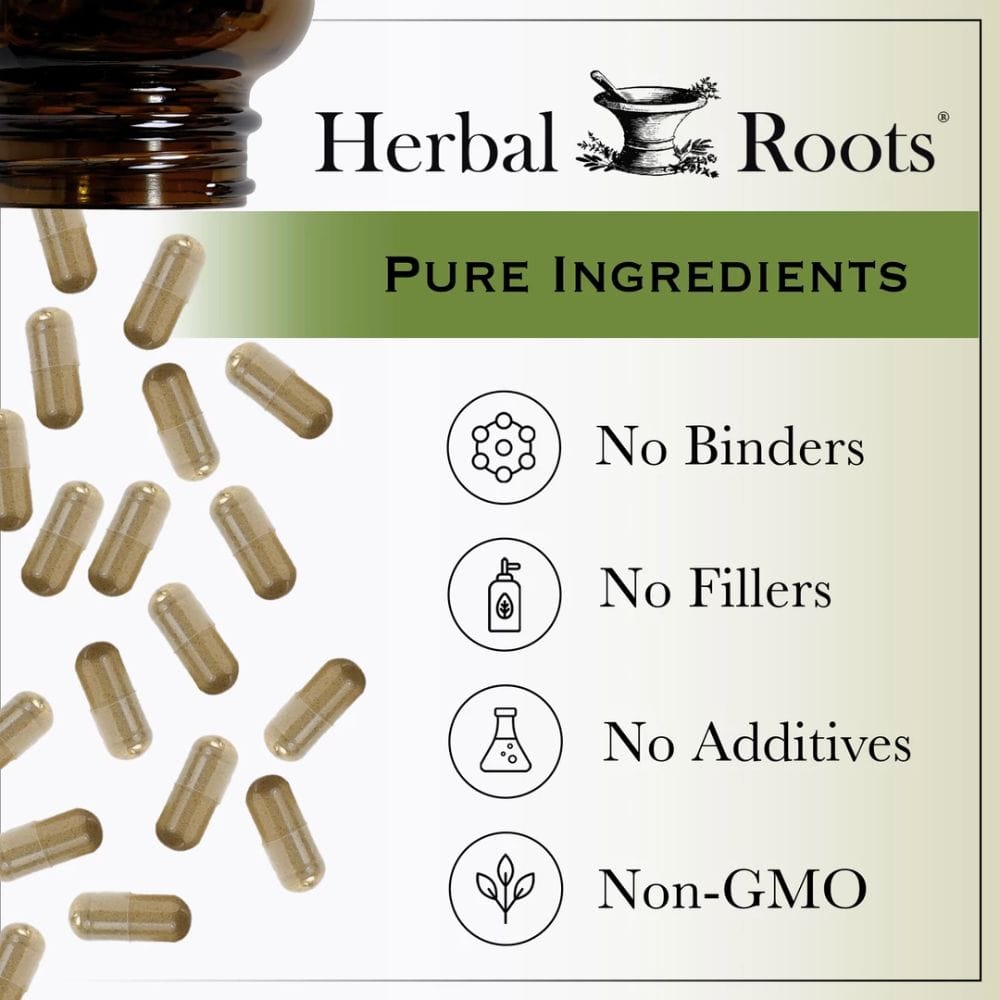
Ginseng and Modern-Day Clinical Trials: The Placebo Effect Unveiled
The scientific community has long been fascinated by the potential health benefits of Korean Ginseng, and modern-day clinical trials are pivotal in separating fact from folklore. Placebo-controlled pilot trials are the gold standard in clinical research, ensuring that the effects of Ginseng are not merely psychological. By comparing Ginseng's effects to those of an inert substance, researchers can conclusively determine its efficacy. These trials have begun to shed light on Ginseng's true capabilities, from enhancing cognitive function to boosting immune response, providing a scientific backbone to centuries-old claims.
In recent years, the number of placebo-controlled studies focusing on Korean Ginseng has surged, reflecting a growing interest in natural remedies. One such study revealed that participants taking Ginseng showed significant improvements in mental clarity and energy levels compared to the placebo group. This not only reinforces the herb's standing in traditional medicine but also opens doors for its integration into modern therapeutic practices. As more trials are conducted, the understanding of Ginseng's pharmacological actions will continue to evolve, potentially revolutionizing its application in healthcare.
Ginseng's Role in Holistic Psychiatry: St. John's Wort Synergy
The exploration of herb-drug interactions, particularly between Ginseng and St. John's Wort, is gaining traction in the realm of holistic psychiatry. These two powerhouses of herbal medicine are often considered for their antidepressant properties. Ginseng, with its adaptogenic qualities, is believed to enhance the body's resistance to stress, while St. John's Wort is primarily known for its mood-stabilizing effects. Together, they may offer a complementary approach to managing mental health conditions, but it is crucial to understand their synergistic effects thoroughly to ensure safety and efficacy.
In the context of herb-drug interactions, the combination of Ginseng and St. John's Wort requires careful consideration. While both herbs individually boast a history of traditional use, their concurrent administration could potentially alter the pharmacokinetics of psychiatric medications. This necessitates rigorous research, including placebo-controlled pilot trials, to decipher the extent of their interaction. Such studies are vital in establishing clear guidelines for their use, ensuring that patients receive the full therapeutic benefits without compromising their conventional treatment regimens.
Enhancing Clinical Research: The Role of Placebo-Controlled Pilot Trials in Ginseng Studies
Placebo-controlled pilot trials are the cornerstone of clinical research, particularly when investigating the efficacy of herbal supplements like Ginseng. These trials are designed to eliminate bias and provide a clear picture of the herb's true therapeutic potential. By comparing the effects of Ginseng against an inert placebo, researchers can ascertain whether the perceived benefits are due to the supplement itself or the psychological impact of expecting improvement—a phenomenon known as the placebo effect.
The inclusion of placebo-controlled pilot trials in Ginseng research is indispensable, especially when examining herb-drug interactions. For instance, when assessing the combined use of Ginseng and St. John's Wort, such trials can help determine if the benefits are amplified, diminished, or remain unchanged. This rigorous approach to research not only bolsters the credibility of the findings but also paves the way for the development of safe and effective treatment protocols that integrate Ginseng with conventional medicine.
John's Wort and Ginseng: Investigating Herb-Drug Interactions
When it comes to herbal supplementation, the potential for herb-drug interactions cannot be overlooked. St. John's Wort, known for its antidepressant properties, is often used in conjunction with Ginseng. However, the combination of these two powerful herbs necessitates a cautious approach. Research indicates that St. John's Wort can affect the metabolism of various pharmaceuticals, potentially diminishing their efficacy or increasing the risk of side effects. As such, understanding the interactions between St. John's Wort, Ginseng, and conventional medications is crucial for safe and effective use.
Healthcare professionals and consumers alike are becoming increasingly aware of the importance of monitoring herb-drug interactions. The combination of St. John's Wort and Ginseng is under scrutiny to ensure that the benefits outweigh the risks. Preliminary studies suggest that while the two herbs may offer complementary health benefits, they also have the potential to interfere with each other's pharmacokinetics. Ongoing research is essential to fully comprehend these interactions, guiding individuals towards informed decisions about their health regimens and ensuring the safe co-administration of these herbal supplements with other medications.
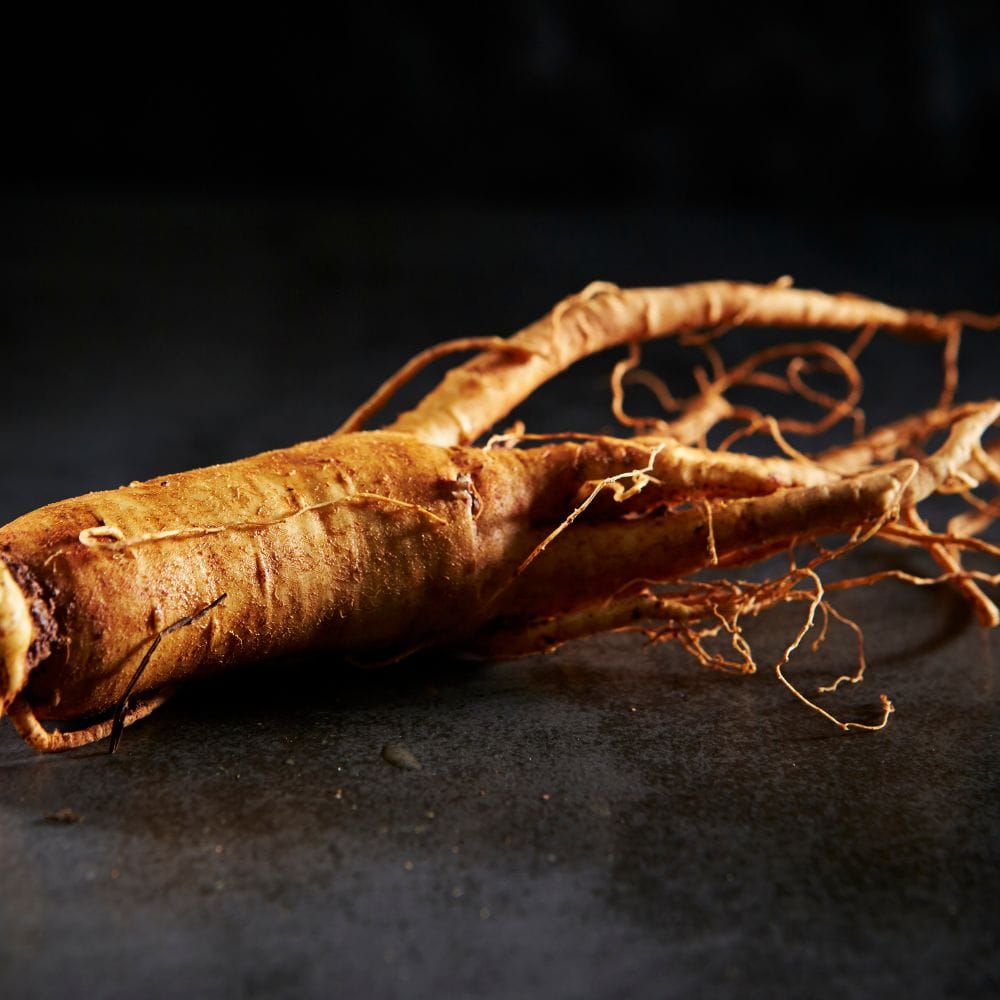
The Interplay Between Ginseng and St. John's Wort: Complementary or Counteractive?
The intricate dance of herb-drug interactions is a fascinating study, particularly when examining the interplay between ginseng and St. John's Wort. Both herbs are powerhouses in their own right, with St. John's Wort commonly used for its antidepressant qualities and ginseng for its energy-boosting and immune-supporting properties. However, when combined, they may influence each other's pharmacokinetics, leading to enhanced or diminished effects. This interaction underscores the importance of understanding how herbal supplements can affect each other, a crucial consideration for consumers and healthcare providers alike.
While the combination of ginseng and St. John's Wort holds potential, it also warrants caution. The complexity of herb-drug interactions necessitates thorough research, particularly through placebo-controlled pilot trials, to ensure safety and efficacy. These trials can help identify any adverse effects or contraindications when these herbs are taken together. As the public's interest in herbal supplements continues to grow, so does the need for rigorous scientific investigation into their interactions. Only through careful study can we fully unlock the therapeutic potential of these natural remedies while safeguarding against any unintended consequences.
Placebo-Controlled Pilot Trials: Unraveling the Mysteries of Ginseng
Placebo-controlled pilot trials are the gold standard in clinical research, and their application in studying Korean Ginseng supplements is no exception. These trials are designed to objectively assess the efficacy of Ginseng in various health conditions, distinguishing true health benefits from the placebo effect. By doing so, researchers can provide concrete evidence of Ginseng's effectiveness, which is essential for both healthcare professionals and consumers seeking alternative treatments.
The importance of such trials cannot be overstated, especially when considering the complex nature of herb-drug interactions. For instance, a placebo-controlled pilot trial could shed light on how Korean Ginseng interacts with conventional medications, ensuring that patients receive the full benefits of Ginseng without compromising their existing treatment plans. This rigorous approach to research paves the way for a deeper understanding and safer use of herbal supplements in modern medicine.
Herb-Drug Interactions: Navigating the Complexities with Ginseng
When it comes to herb-drug interactions, ginseng is a prime candidate for scrutiny due to its widespread use and potent effects. As the body of knowledge grows, it's becoming increasingly clear that while ginseng offers numerous health benefits, it can also interact with various medications. For instance, ginseng may alter the effectiveness of blood-thinning drugs or impact blood sugar levels, which is crucial information for healthcare providers. This underscores the importance of discussing herbal supplement use, including ginseng, with a healthcare professional, especially for those on prescription medications.
Moreover, the interaction between ginseng and other herbal supplements, such as St. John's Wort, is a subject of ongoing research. St. John's Wort is known for its antidepressant properties but can also affect the metabolism of other drugs. A health syst pharm approach, which involves a comprehensive understanding of both pharmacology and herbal medicine, is essential for safely navigating these interactions. As consumers turn to natural remedies, the need for education on potential herb-drug interactions becomes more critical, ensuring that the benefits of ginseng are harnessed without compromising safety.
Herb-Drug Interactions: Navigating Ginseng's Medicinal Landscape
When delving into the world of herbal supplements, it's crucial to be aware of potential herb-drug interactions. Ginseng is no exception, and while it offers a multitude of health benefits, it can also interact with various medications. For instance, ginseng has been known to affect blood clotting and may interfere with anticoagulant drugs. It's essential for individuals on medication to consult with healthcare professionals before integrating ginseng into their regimen.
In addition to its interactions with prescription drugs, ginseng should be used cautiously in combination with other herbs, such as St. John's Wort, which is commonly used for depression. Both herbs can influence the metabolism of certain drugs, leading to either an increase or decrease in their effectiveness. As the use of ginseng grows globally continues to rise, the importance of understanding these interactions becomes paramount for both consumers and healthcare providers, ensuring safe and effective use of this powerful herbal supplement.
Ginseng's Compatibility with Other Herbal Supplements
The integration of ginseng with other herbal supplements has become a focal point in the realm of natural health. A placebo-controlled pilot trial might explore the synergistic effects of combining ginseng with other herbs like St. John's Wort, known for its mood-stabilizing properties. Such research could pave the way for comprehensive herbal supplement regimens that target multiple health concerns simultaneously. However, it's crucial to consider potential herb-drug interactions, as ginseng can influence the metabolism of various medications, necessitating guidance from health professionals.
Moreover, the Panax genus, to which ginseng belongs, offers a variety of species, each with unique properties. For instance, the combination of ginseng and Ginkgo Biloba has been studied for its potential to enhance cognitive function. As consumers seek pure supplements that offer the best of oriental ginseng's benefits, the market responds with innovative products that blend ginseng with other efficacious herbs. These combinations are often available in both oral and topical ginseng formulations, catering to the diverse preferences and needs of health-conscious individuals.
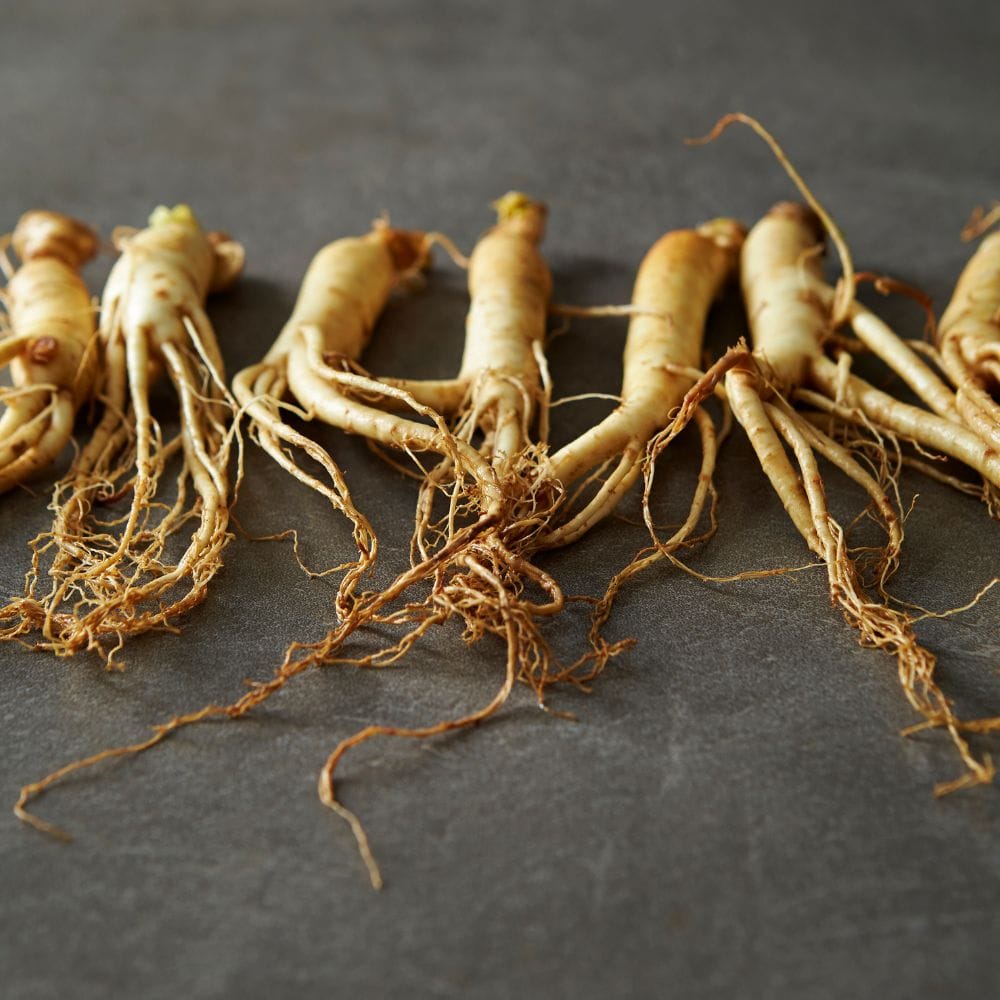
Ginseng's Role in Women's Health: Beyond Menopausal Relief
While ginseng has been widely recognized for its efficacy in addressing menopausal symptoms, its role in women's health extends further. Recent studies have explored the use of Korean ginseng, particularly the red and white varieties, in managing issues such as vaginal bleeding and menstrual irregularities. The adaptogenic properties of ginseng help in balancing the body's hormones, which can be beneficial for women experiencing these symptoms.
However, it is crucial to approach the use of ginseng with caution, especially in the context of herb-drug interactions. Women who are on medications or those who have a history of hormone-sensitive conditions should consult with a health professional before incorporating ginseng into their regimen. A placebo-controlled pilot trial could provide valuable insights into the safety and efficacy of ginseng for these specific women's health concerns, ensuring that the use of this medicinal herb is both responsible and beneficial.
Addressing Menopausal Symptoms with Ginseng
The hormonal fluctuations during menopause can lead to a range of uncomfortable symptoms. Ginseng has been used in randomized clinical trials to assess its effectiveness in alleviating these symptoms. The results have been promising, with ginseng showing potential in reducing the severity of hot flashes and other menopausal discomforts.
Ginseng for Mental Clarity and Cognitive Function
The impact of ginseng on cognitive function cannot be overstated. Studies have indicated that ginseng may enhance mental clarity and improve memory. This is particularly relevant in the context of aging populations, where cognitive decline is a major concern. Ginseng's adaptogenic properties also contribute to its ability to combat mental fatigue and stress.
Herbal Roots Korean Ginseng: A Trusted Brand
Herbal Roots is a brand that has garnered trust among ginseng users for its commitment to quality and purity. Their Korean Ginseng supplement is a testament to this dedication, offering a product that is both effective and reliable. With a focus on organic sourcing and stringent quality control, Herbal Roots ensures that each bottle of their ginseng supplement delivers the promised health benefits.
The Role of Ginseng in Managing Erectile Dysfunction
Treating erectile dysfunction is another area where ginseng has shown promise. The root's ability to improve blood flow and its potential hormonal effects have made it a natural alternative for those seeking to enhance sexual function. Clinical trials have supported the use of ginseng for this purpose, providing hope for individuals looking for herbal solutions to this sensitive issue.
Ginseng and Physical Endurance: Boosting Athletic Performance
Athletes and fitness enthusiasts have turned to ginseng to enhance physical endurance and reduce recovery times. The root's energizing effects are believed to stem from its ability to increase oxygen uptake and regulate metabolism. This makes ginseng a popular choice for those looking to naturally boost their athletic performance.
Interactions with Medications: A Word of Caution
While ginseng offers numerous health benefits, it is important to be aware of potential herb-drug interactions. For instance, ginseng may interact with diabetes medications, blood thinners, and other prescription drugs. It is crucial to consult with a healthcare provider before adding ginseng to your regimen, especially if you are on medication.
The Future of Ginseng Research
The journey of ginseng research is far from over. With ongoing studies in areas like acute respiratory illness, rheumatoid arthritis, and even attention deficit hyperactivity disorder, the potential applications of ginseng continue to expand. As we uncover more about this remarkable root, its place in both traditional and modern medicine becomes increasingly significant.
Choosing the Right Ginseng Supplement
When selecting a ginseng supplement, factors such as the source of the root, the method of extraction, and the presence of other herbs or fillers must be considered. Herbal Roots Korean Ginseng stands out for its commitment to providing a pure, potent product, free from unnecessary additives. This ensures that you receive the same active ingredients that have been revered for centuries.
Ginseng's Global Impact: From Asia to the World
The influence of ginseng has transcended its Asian origins, making its mark on the global stage. As more people seek natural alternatives for health and wellness, ginseng's popularity continues to grow. Its adaptability to different cultures and health practices underscores its universal appeal and enduring legacy.
Summary
Herbal Roots Korean Ginseng supplement embodies the ancient wisdom of traditional Chinese medicine, offering a natural solution for a multitude of health concerns. From boosting the immune system to enhancing cognitive function and physical endurance, the benefits of this potent root are backed by both historical use and modern scientific research. With a commitment to quality and purity, Herbal Roots provides a supplement that harnesses the full potential of Korean ginseng, making it a valuable addition to any health regimen.
If you're ready to give your body the love it deserves, check out this special item above. We are sure you won't be disappointed!
As always, consult with your physician before starting any new supplement regimen to check about potential interactions with other supplements or medications. The information presented in this document is purely for educational purposes and should not be construed as medical advice.
While every effort has been made to ensure the accuracy and reliability of the information provided, all health-related decisions should be made in consultation with a qualified healthcare professional. The author does not take any liability for the health decisions made by the reader.
Dietary supplements are not regulated the way drugs are in the country of United States of America. This means the Food and Drug Administration (FDA) does not approve them for safety and effectiveness before products are marketed. When possible, choose a supplement tested by a trusted third party, such as Consumer Labs, USP, or NSF.
FAQ Section
Q: Can Herbal Roots Korean Ginseng supplement be taken with other medications?
A: While ginseng is generally safe, it can interact with certain medications. It's important to consult with a healthcare provider before combining ginseng with other medications, especially those for diabetes, blood pressure, or blood thinning.
Q: How does Korean ginseng differ from American or Siberian ginseng?
A: Korean ginseng (Panax ginseng) is known for its high concentration of ginsenosides, which are believed to be responsible for its health benefits. American ginseng (Panax quinquefolius) and Siberian ginseng (Eleutherococcus senticosus) have different active compounds and properties.
Q: Is there a best time of day to take the Herbal Roots Korean Ginseng supplement?
A: There is no specific best time to take ginseng, but some people prefer to take it in the morning or early afternoon to take advantage of its energizing effects without interfering with sleep. It's best to follow the manufacturer's instructions or consult with a healthcare provider for personalized advice.


